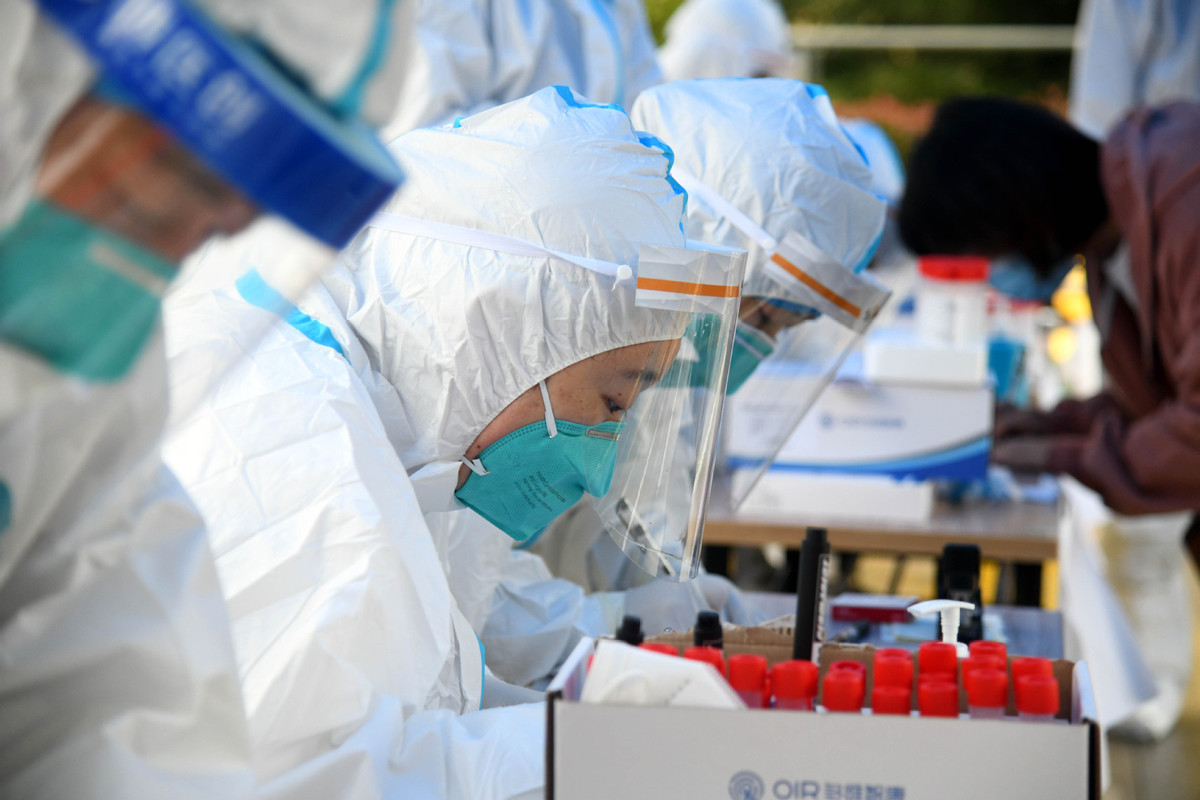Treating potentially severe COVID cases given priority






The focus of COVID-19 control measures has shifted to intervention in potentially severe cases as the milder Omicron variant spreads more widely, experts said.
Medical workers and health authorities in many Chinese cities have adjusted their COVID-19 policies to ensure public safety remains a priority as the country's optimized epidemic control measures enter a new phase.
The Beijing Emergency Medical Center has seen a recent surge in emergency calls for medical consultation from asymptomatic and mild patients, while some callers have made urgent requests for an ambulance.
Chen Zhi, the center's chief physician, advised asymptomatic carriers and people with mild COVID-19 symptoms not to make emergency calls to the center and to leave emergency hotlines open for critically ill patients.
Beijing Ditan Hospital, a designated medical institution for COVID-19 patients since the pandemic started three years ago, will only accept patients in severe or critical condition after they have been evaluated by medical experts. More hospitals in Beijing have recently started to receive patients infected with COVID-19.
"Since early 2020, Ditan Hospital has been continuously treating COVID-19 patients and has accumulated experience through treating a large number of COVID-19 patients, especially those in severe or critical condition," Chen Xiaoyou, deputy director of the hospital, told Beijing Youth Daily on Saturday. "As of Saturday, there were 367 COVID-19 patients undergoing treatment at our hospital, including 130 age 60 and above.
"Even though the proportion of patients in severe or critical condition is small, the number of people infected with the Omicron strain is large," he said. "The number of severe and critical cases in the future is likely to be big."
The hospital can provide 100 beds for COVID-19 patients in severe or critical condition.
A medical team has been set up to deal with such cases, Chen said.
Zhong Nanshan, a prominent respiratory expert, said that hospitals should establish separate zones to treat infected people who have other diseases.
Before the current Omicron strain, strict containment measures had been imposed for other novel coronavirus variants, which had relatively high death rates, some as high as 4.6 percent, Zhong said during an interview with local media in Guangzhou, Guangdong province.
The Omicron variant, though highly transmissible, has had a death rate of less than 0.1 percent in some major cities, Zhong said.
The majority of infected people who have mild symptoms or none do not need treatment and will recover in five to seven days with enough rest. They can choose to quarantine at home if conditions allow, which helps alleviate pressure on medical institutions handling serious cases, he said.
He also called for beefing up the COVID-19 vaccination drive, particularly among the elderly and other vulnerable groups, which is a vital step for COVID-19 prevention and control.
- China's top legislature concludes standing committee session
- Academician Zhu Guangya's 100th anniversary of birth marked
- Former Shaanxi senior legislator sentenced to death for bribery
- Yangtze River Delta region a demonstration of green development
- New minister of natural resources appointed in China
- Mental health support line launched



































